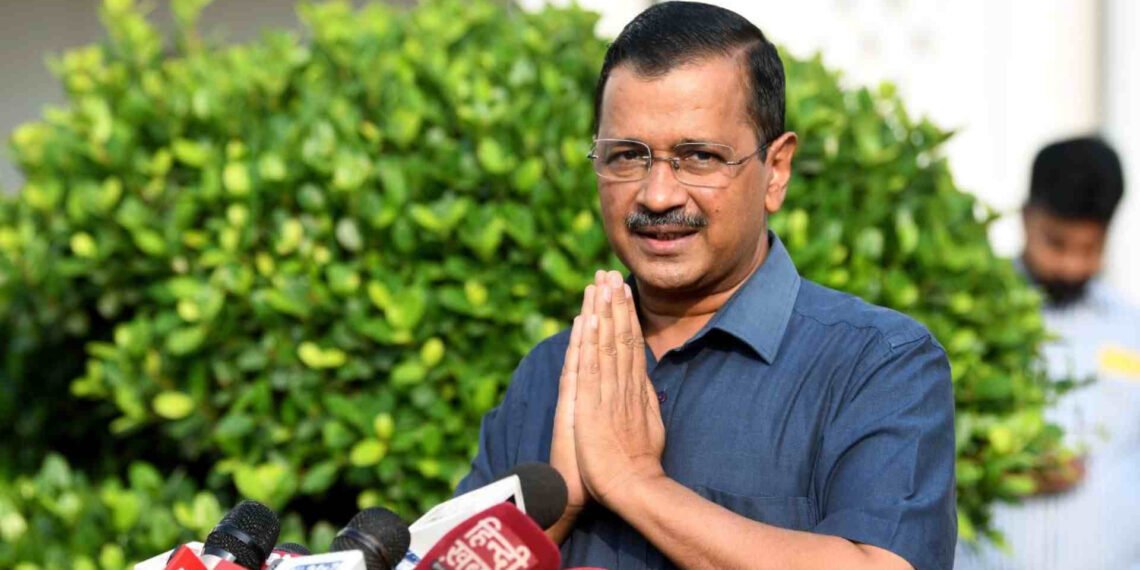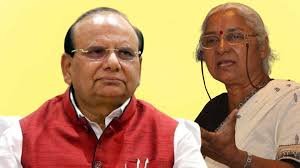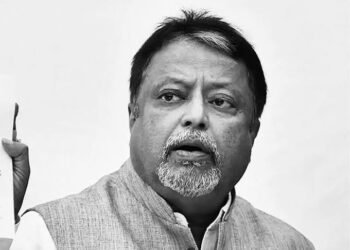Arvind Kejriwal, the cunning leader of the Aam Aadmi Party (AAP), once again caused political turmoil by surprising everyone with his decision to step down as Delhi Chief Minister. Three days after being released from prison on bail from the Supreme Court for the contentious liquor policy case, he made his decision.
Yet, Kejriwal’s decision to resign is not just a step back; it is a planned strategic risk to reinforce his reputation as a leader who cannot be corrupted and to rally support for the upcoming Delhi assembly elections.
Kejriwal granted bail by Supreme Court

Six months after his initial arrest in the suspected Delhi liquor policy scandal, Chief Minister Kejriwal was given bail by the Supreme Court in the CBI case on Friday. Despite both Supreme Court judges agreeing to grant bail, they disagreed on the legality of Kejriwal’s arrest by the CBI.
The leader of AAP was released from prison after being given temporary bail for the ED’s money laundering case. Kejriwal became the fifth prominent leader to receive bail in the case, following AAP leaders Manish Sisodia, Sanjay Singh, Vijay Nair, and Bharat Rashtra Samithi’s K Kavitha.
Standing through the sunroof of a car, the AAP chief then addressed party workers who gathered outside the Tihar Jail and chanted slogans of “Jail Ke Tale Toot Gaye, Kejriwalji Chhoot Gaye”.
“Thank you all for waiting for me in the rain. They put me in jail, they thought putting Kejriwal behind bars would break his morale. Today, I want to tell you that I have come out of jail. My morale has been boosted 100 times. My strength has increased 100 times,” Kejriwal said.
Meanwhile, the BJP criticized Kejriwal’s bail and demanded his immediate resignation as the Supreme Court granted him conditional bail and he remains an accused in the liquor policy case.
Also read: Atishi takes oath as Delhi’s Chief Minister; 5 members join cabinet
Kejriwal’s resignation move
Kejriwal stepped down after the Supreme Court imposed significant restrictions as conditions for granting him bail. These restrictions prevented him from going to his workplace or authorizing official papers, essentially crippling his leadership.
“I will be stepping down as Chief Minister in two days. I will not occupy the Chief Minister’s seat until the people give their verdict…. I would visit all homes and streets and not sit in the Chief Minister’s chair till I get a verdict from the people,” he said.
With the Delhi Assembly elections scheduled for February next year, Kejriwal stated that he will come back as Chief Minister only if the voters endorse his “certificate of honesty”.
Atishi takes oath as Delhi CM

During the AAP legislature party meeting on Tuesday, Atishi was selected as Chief Minister designate with unanimous approval after Kejriwal resigned, causing surprise in Delhi’s political circles.
Atishi took office as the 8th Chief Minister of Delhi at Raj Niwas on September 28. Five members of the cabinet, including four from the previous administration and one new addition, were also appointed during the same ceremony.
Atishi, a prominent figure in the AAP and the previous government, became a key face of the party while Arvind Kejriwal was in Tihar jail for the excise policy case, despite her Oxford education.
Also read: Manish Sisodia to meet Kejriwal today amid speculation over next Delhi CM
Kejriwal’s resignation seen as a tactical move
Kejriwal’s resignation followed significant restrictions laid down by the Supreme Court while granting him bail. These restrictions prevented him from going to his workplace or authorizing official paperwork, essentially halting his leadership.
In order to prevent the AAP’s governance record from being tarnished by inactivity and bureaucratic stagnation, Kejriwal is resigning to avoid a greatly affected administration.
By resigning, he is preparing the party for a new beginning with different leadership and shifting the focus from the accusations against him.
Kejriwal’s choice to resign is also a skillfully planned political move. He seeks to enhance his position against corruption accusations and connect with voters by presenting his resignation as a moral gesture, asking for a “certificate of honesty” from the public.
Broader Implications

The future of AAP and the political scenario in Delhi are now crucial after Kejriwal’s resignation. Being the party’s figurehead since the beginning, his exit from the role of Chief Minister brings up concerns regarding the party’s capacity to continue functioning effectively without its charismatic leader in charge. His choice to not appoint Manish Sisodia as his successor, citing Sisodia’s legal issues, is a significant factor in the uncertainty surrounding AAP’s political future.
Arvind Kejriwal’s bold and strategic political move to resign as Delhi’s Chief Minister shortly before the assembly elections has the potential to change the future of Delhi. By presenting his resignation as an ethical gesture and reaching out to voters, he aims to change the conversation from allegations of corruption and regain public backing. Nevertheless, the risks are significant, and the result of this risk-taking remains unclear.














